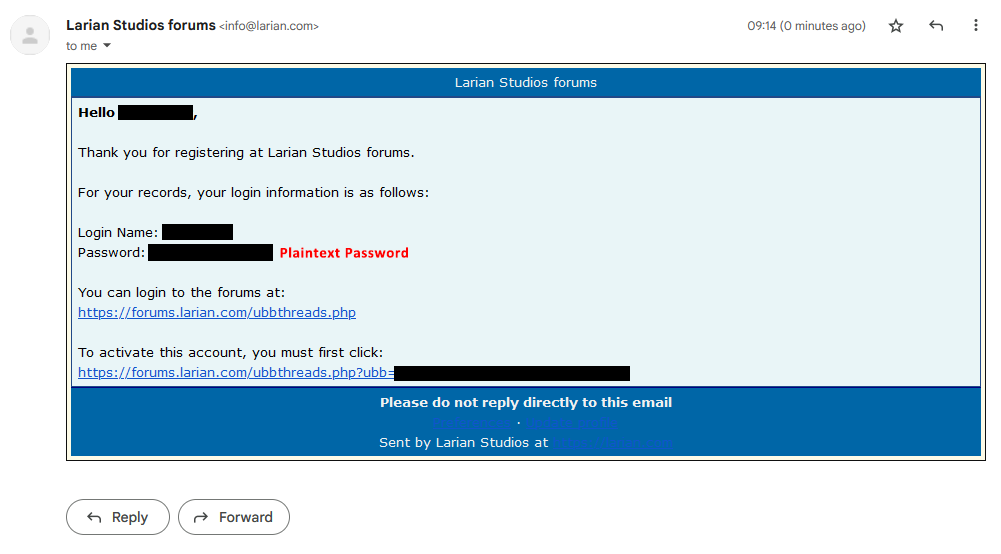this post was submitted on 28 Sep 2023
323 points (75.7% liked)
Games
32579 readers
1521 users here now

Welcome to the largest gaming community on Lemmy! Discussion for all kinds of games. Video games, tabletop games, card games etc.
Weekly Threads:
Rules:
-
Submissions have to be related to games
-
No bigotry or harassment, be civil
-
No excessive self-promotion
-
Stay on-topic; no memes, funny videos, giveaways, reposts, or low-effort posts
-
Mark Spoilers and NSFW
-
No linking to piracy
More information about the community rules can be found here.
founded 1 year ago
MODERATORS
you are viewing a single comment's thread
view the rest of the comments
view the rest of the comments

no, they probably dont.
they just send it to your email upon registration, which is kinda a bad idea, but they are probably storing passwords hashed afterwards.
...and if they keep the emails they send out archived (which would be reasonable), they also have it stored in plaintext there.
Automatically generated emails usually don't get saved.
As the designated email dev at my company I can confidently say this is not true.
Not saying that this specific email is persisted, but almost all that I work with are. It's a very common practice.
Yeah, we save most emails sent out at my work.
I wonder how much this varies depending on the amount of data it would require to store the emails of a company. I know nothing about this subject, but does it occur where companies with very large email lists would forgo storing those types of emails to save data costs?
In my experience it varies a lot. Even in our own system certain emails are stored differently. There are a few "we legally have to deliver this email and might need to prove it later" notifications. We store a PDF of those in s3. For others we might just save the data, a sent timestamp, and a key for which email visual template was used.
I also thought of a counter argument to my point overnight. We don't store one super duper high volume email which is the email that only has an MFA code. We would also absolutely never ever dream about allowing a plaintext password in an email, so we're probably following different patterns in the first place.